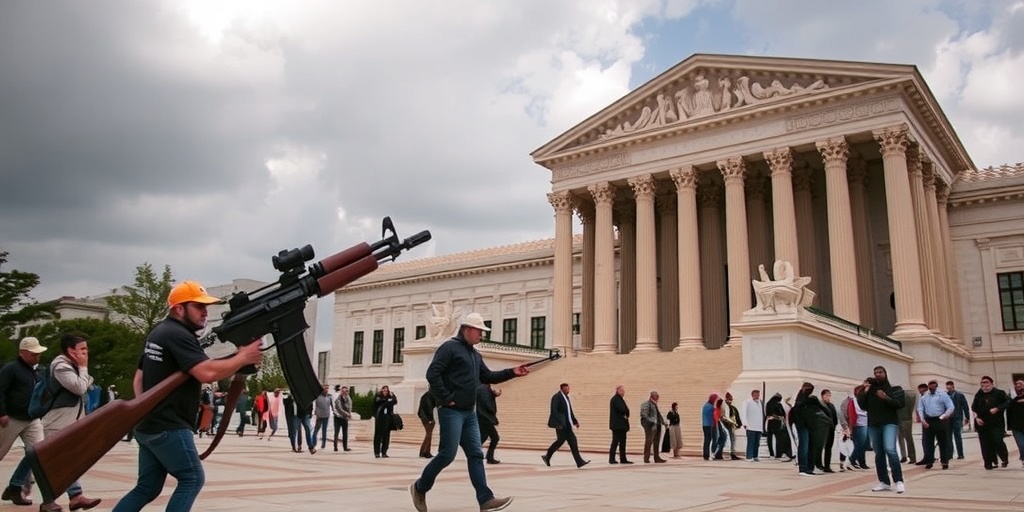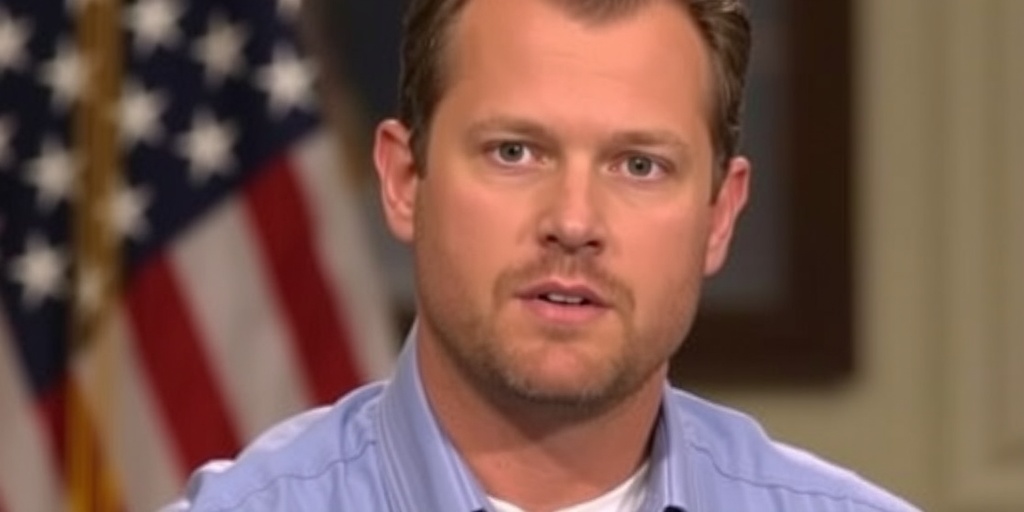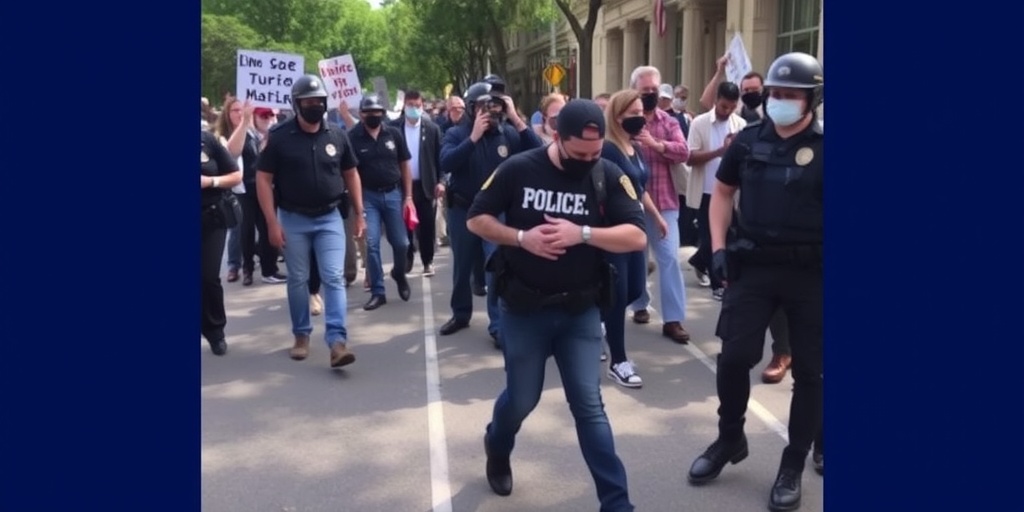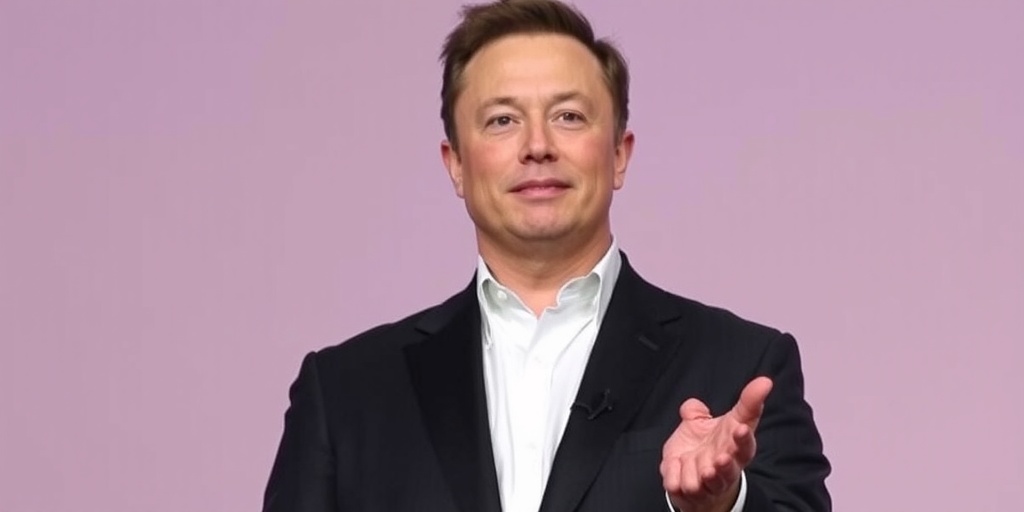Now Reading: Medicaid Cuts Create Budget Dilemma for Valadao and Republicans
-
01
Medicaid Cuts Create Budget Dilemma for Valadao and Republicans
Medicaid Cuts Create Budget Dilemma for Valadao and Republicans
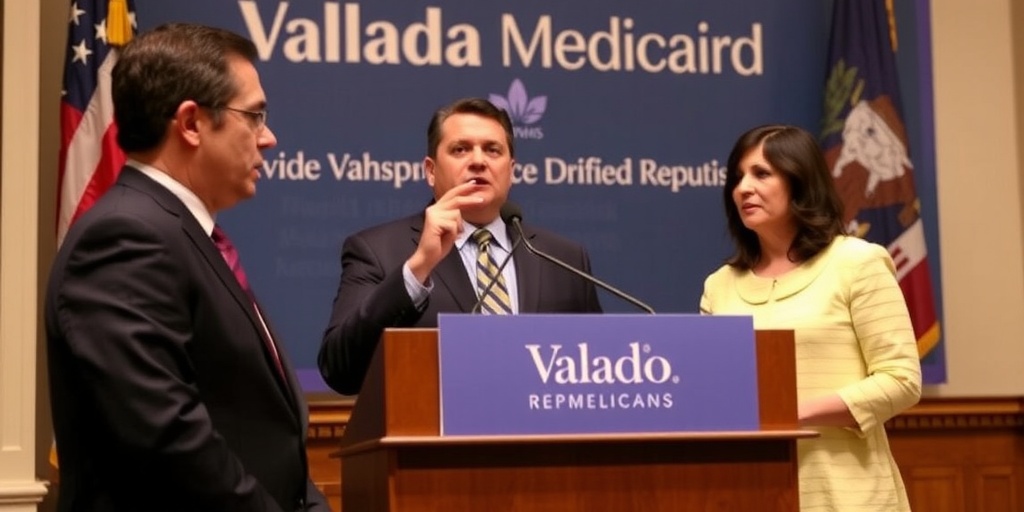
House Republicans Face Political Backlash Over Medicaid Cuts in Budget Proposal
As House Republicans prepare to vote on their budget plan, the political ramifications are already unfolding, particularly for members like Representative David Valadao of California. Valadao’s district in the Central Valley is heavily dependent on Medicaid, with nearly two-thirds of its population relying on the program for healthcare. This includes a wide array of constituents, from low-income individuals needing nursing home care to parents of disabled children and veterans struggling with chronic health issues.
Valadao finds himself in a precarious position as he weighs the party’s proposal, which includes an ambitious tax cut package funded largely through significant cuts to Medicaid. House Republican leadership is faced with the challenge of securing near-unanimous support among their members in order to push through the budget plan, which requires $2 trillion in spending cuts. With Medicare off the table for cuts, this means that Medicaid reductions would need to account for nearly half of that total.
However, the reality of these proposed cuts is making lawmakers uneasy. The challenge extends beyond mere numbers on a spreadsheet and into the realm of real-life consequences for their constituents. In a letter addressed to House GOP leaders, Valadao and several other Hispanic lawmakers expressed their deep concerns regarding the negative impact of such cuts, particularly for rural and predominantly Hispanic communities. They argued that hospitals and nursing homes in these areas are already struggling to stay afloat and would be severely impacted by any reduction in Medicaid funding.
Facing pressure from constituents, Valadao chose not to attend a recent town hall organized by a local healthcare advocacy group in Bakersfield, which was attended by an overflowing crowd. Many attendees expressed their anger and disappointment regarding the proposed budget cuts. Grace Huerta, a mother of two adult children with autism, confronted Valadao’s absence. She reminded the audience of the congressman’s past promises to advocate for individuals with disabilities.
This scene is reflective of a broader sentiment among constituents not only in Valadao’s district but across the nation. As House Republicans return from their recess, they are facing growing dissent from angry constituents, some in traditionally Republican areas, who are voicing their concerns about the proposed deep cuts across various government programs, including Medicaid.
In some areas, protests have erupted, with constituents calling out their representatives for supporting cuts that threaten vital services. For example, Virginia Beach saw demonstrations outside Representative Jen Kiggans’s office, while in Georgia, attendees at a town hall booed Representative Rich McCormick over spending reductions. In Pennsylvania, demonstrators gathered outside the offices of Representatives Ryan Mackenzie and Scott Perry, urging them to reconsider the impact of impending Medicaid cuts.
Despite the urgency of addressing the budget, House Republicans are anticipating a challenging vote, as the plan calls for the Energy and Commerce Committee to identify $880 billion in Medicaid cuts. If all cuts were to come from Medicaid, that would represent an average reduction of 11% over the next decade for the program.
Adding to the complexity, the GOP Budget Committee had initially anticipated that enforcing work requirements on Medicaid would save around $100 billion, but further cuts may be necessary to meet the established targets, raising the specter of shifting more healthcare costs to states.
Making matters worse for Republicans is the fact that Donald Trump, who previously vowed to protect Medicare and Medicaid during his campaign, has endorsed the House’s budget plan that proposes cuts to both programs. This puts representatives like Valadao in a tough spot, caught between the need to support the party’s agenda and the risk of alienating their constituents, particularly in Democratic-leaning districts like his.
Valadao is well aware of the consequences of supporting legislation that threatens popular healthcare programs. His previous election loss in 2018 serves as a reminder of the political dangers involved—he was voted out after Democrats focused on the GOP’s attempts to repeal the Affordable Care Act, which resonated strongly with voters.
Democratic leaders are planning to leverage this opportunity, aiming to repeat the successful strategy that helped them regain the House in 2018. Representative Hakeem Jeffries of New York highlighted the importance of focusing on how GOP policies to cut healthcare funding could negatively affect constituents, framing these issues as critical in winning back public support.
Supporters of Medicaid cuts within the GOP may not fully comprehend the potential backlash. For many, Medicaid is not just a government program but a lifeline. Local leaders in Valadao’s district, like Angel Galvez, the head of the Bakersfield American Indian Health Project, have emphasized that their clientele relies almost exclusively on Medicaid for essential health services. Similarly, Kelly Kulzer-Reyes expressed her fears, noting the personal impact Medicaid has on her family’s ability to provide care for their daughter with Down syndrome.
With mounting pressure from constituents and mounting examples of protest, Valadao and his colleagues stand at a critical juncture, where their decisions could carry significant political consequences as the vote on the budget approaches. Whether they will prioritize party loyalty over constituents’ needs remains to be seen.
Stay Informed With the Latest & Most Important News
Previous Post
Next Post
-
 01New technology breakthrough has everyone talking right now
01New technology breakthrough has everyone talking right now -
 02Unbelievable life hack everyone needs to try today
02Unbelievable life hack everyone needs to try today -
 03Fascinating discovery found buried deep beneath the ocean
03Fascinating discovery found buried deep beneath the ocean -
 04Man invents genius device that solves everyday problems
04Man invents genius device that solves everyday problems -
 05Shocking discovery that changes what we know forever
05Shocking discovery that changes what we know forever -
 06Internet goes wild over celebrity’s unexpected fashion choice
06Internet goes wild over celebrity’s unexpected fashion choice -
 07Rare animal sighting stuns scientists and wildlife lovers
07Rare animal sighting stuns scientists and wildlife lovers














